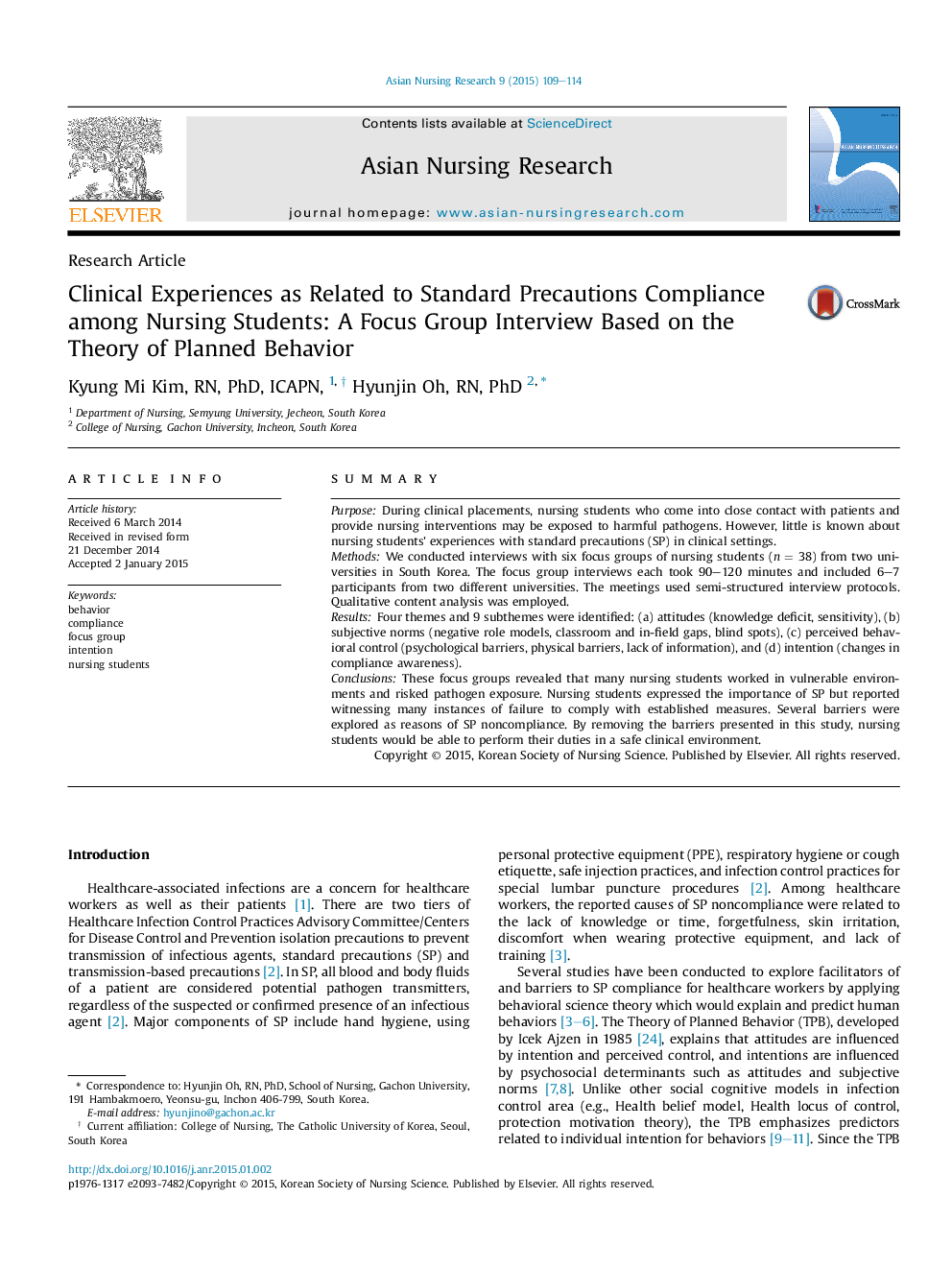| Article ID | Journal | Published Year | Pages | File Type |
|---|---|---|---|---|
| 2644924 | Asian Nursing Research | 2015 | 6 Pages |
SummaryPurposeDuring clinical placements, nursing students who come into close contact with patients and provide nursing interventions may be exposed to harmful pathogens. However, little is known about nursing students' experiences with standard precautions (SP) in clinical settings.MethodsWe conducted interviews with six focus groups of nursing students (n = 38) from two universities in South Korea. The focus group interviews each took 90–120 minutes and included 6–7 participants from two different universities. The meetings used semi-structured interview protocols. Qualitative content analysis was employed.ResultsFour themes and 9 subthemes were identified: (a) attitudes (knowledge deficit, sensitivity), (b) subjective norms (negative role models, classroom and in-field gaps, blind spots), (c) perceived behavioral control (psychological barriers, physical barriers, lack of information), and (d) intention (changes in compliance awareness).ConclusionsThese focus groups revealed that many nursing students worked in vulnerable environments and risked pathogen exposure. Nursing students expressed the importance of SP but reported witnessing many instances of failure to comply with established measures. Several barriers were explored as reasons of SP noncompliance. By removing the barriers presented in this study, nursing students would be able to perform their duties in a safe clinical environment.
